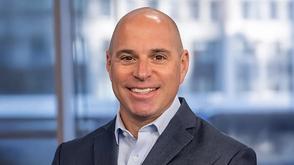‘Exits, Exits, Exits’: Inside EQT’s Record-breaking Year in Equity Capital Markets


A behind the scenes look at EQT’s all-hands strategy for exiting portfolio companies in 2024.
- Arranging sales of portfolio companies and assets became the leading priority after the pandemic hit dealmaking
Early in 2024, after two consecutive years of subdued dealmaking in global markets, Christian Sinding, the then Chief Executive of EQT, spoke publicly – and perhaps counterintuitively – about the firm’s decision to make exits one of four “key priorities” for the year.
“We are going to remain razor-focused on performance for our clients and driving exits and new deals, even as these markets were, and remain, a little bit uncertain,” he said in EQT’s 2023 year-end report.
The timing was interesting, given that 2022 and 2023 had proved tough for private equity exits after the boom of 2021. The gross value of private equity exits globally fell to $350bn in 2023, down 60 percent compared to two years earlier, a market outlook report from Bain & Co shows.
The same report listed the ‘exit environment’ as the biggest challenge to generating returns in 2025. It also pointed out that global distributions to investors as a share of net asset value had fallen to 11 percent in 2024 from 29 percent in 2014.
Value of Global Buyout-backed Exits

The decision to prioritize exits had been months in the making, born of lengthy discussions between the firm’s senior leaders, including Lennart Blecher, Deputy Managing Partner and Chairperson of EQT Real Assets.
“We saw in 2022 that the market for exits was drying up and becoming more complicated,” Blecher recalls. “At the same time, we knew it was important for EQT, and indeed the entire industry, to ensure that capital was returned to clients, even if the markets were tough.”
The executive committee, therefore, decided that the mantra for 2024 would be ‘exits, exits, exits’, he says. “We were confident it would give us a competitive edge if we could return capital to our clients when everybody was struggling to do so.”
Difficult conversations with clients
Peter Beske Nielsen, Global head of Private Wealth at EQT, remembers that the firm was having “difficult conversations with clients – as were our peers – because clients demand performance, and performance requires exits”.
By the end of 2023, he says, clients had raised the bar with their expectations. “Their due diligence teams were, quite rightly, asking tough questions about capital delivery from the funds they’d invested in.
“Every investor keeps a close eye on the returns distributed by private equity firms. If they don’t get their money when they should, they can’t and won’t reinvest it. So, the challenge for us was to solve what was actually an industry-wide problem. We knew that if we could find the solution, we would stand ahead of the pack.”
Putting exit plans in place
EQT develops an exit plan for each of its portfolio companies before it acquires them. Post-acquisition, the plan is regularly updated through periodic performance reviews. These reviews typically involve meetings between EQT executives and the portfolio company’s leaders, at which performance and exit readiness are discussed in detail.
The execution of the 2024 exits strategy involved enhancing periodic performance reviews with new internal committees that focused solely on exits. Exit and liquidity committees, staffed by members of EQT’s senior management team, scrutinized the exit readiness of each portfolio company.
Every EQT partner overseeing a portfolio company was instructed to present to the relevant committee how much value had been added to the company post-acquisition and where it was on the road to exit.
“We put a lot of pressure on the partners and their teams to answer very direct questions about their proposed exit processes,” Blecher says.
“Essentially, if we had owned the company for four or more years, we wanted them to answer the question: ‘Why haven’t we exited this company yet?’. And if we had owned a company for two or three years, we wanted to know very concretely when the exit process would start.
“We wanted to see detailed exit strategies and hear sound reasoning if a particular exit appeared to be overdue. We discussed whether a full or partial sale into private hands, an IPO, or some other exit would be the best route. We used these meetings to focus everybody’s minds on the need to execute exits. And it worked.”
EQT Most Active ECM Sponsor in 2024

In 2024, EQT’s total gross fund exits amounted to €11bn, a 72 percent increase on 2023. It was a record year for the firm in terms of exits. It also meant that EQT was the most active private markets firm globally in 2024 in terms of IPOs and follow-on transactions, according to data from Goldman Sachs and Dealogic.
Notable exits included private schools operator Nord Anglia, data center provider EdgeConneX, and the IPO of skincare specialist Galderma, which meant that EQT was the world’s leading equity capital market financial sponsor in 2024, overseeing $8.6 billion worth of such transactions.
“You can talk a big game, but it’s much more effective if you show results,” says Nielsen, who said the flurry of exits impressed clients and helped EQT meet fundraising targets. “Clients trust us to deliver on exits, even when the market is tough, and I think we’ll see a divergence between firms that can really deliver performance in challenging markets and those that cannot.”
In November 2024, Sinding told staff: “First and foremost, we’ve seen strong progress on our priority for the year –‘exits, exits, exits’ – with great execution across IPOs, minority sales and full exits. Let’s keep up this momentum!”
Indeed, the ‘exits, exits, exits’ mantra is still being repeated inside EQT. In the firm’s year-end presentation for 2024, Sinding, said there is a pipeline of exit events planned for 2025. “Of course, we are going to be patient if the market has turned more volatile than it is today,’’ he added.
ThinQ by EQT: A publication where private markets meet open minds. Join the conversation – [email protected]






